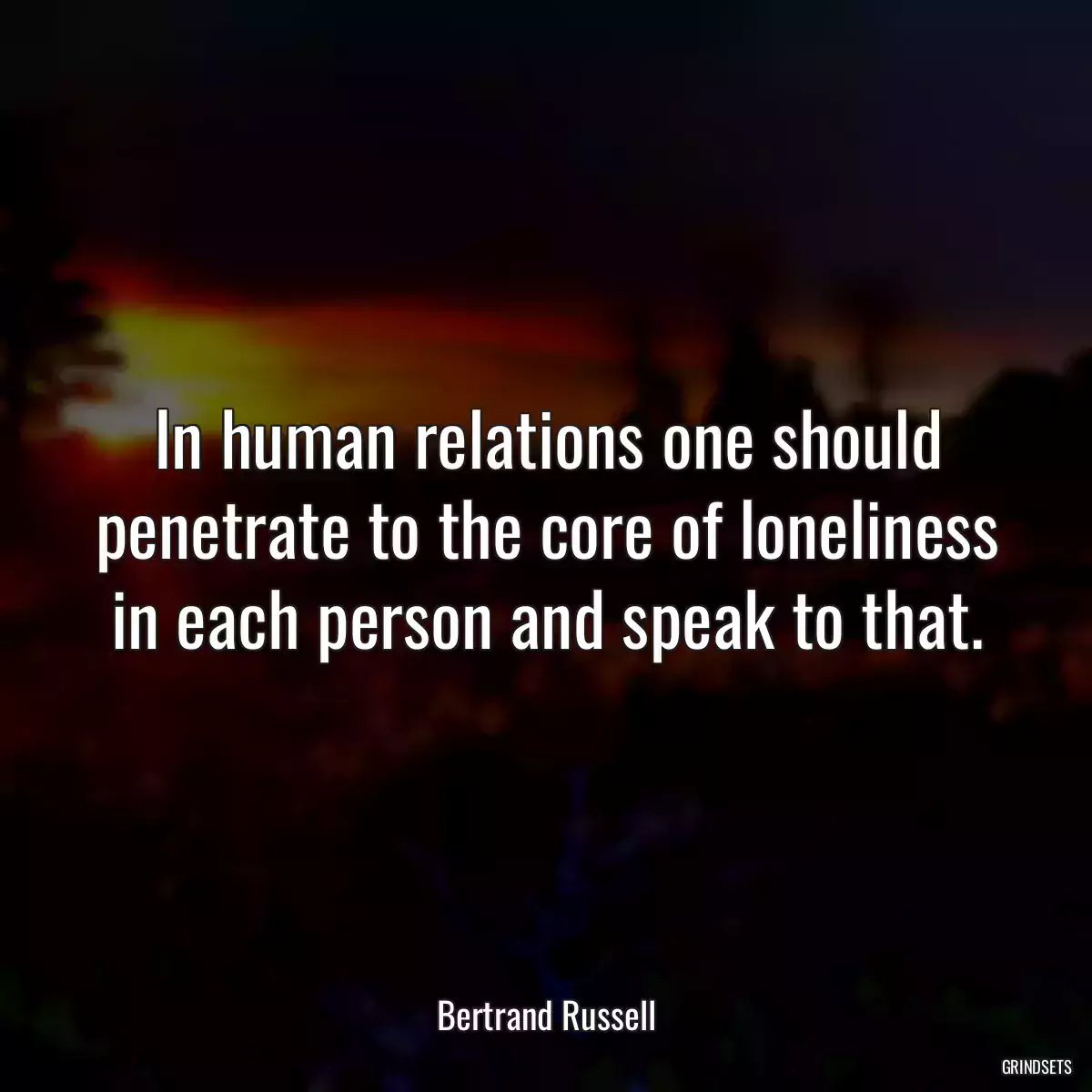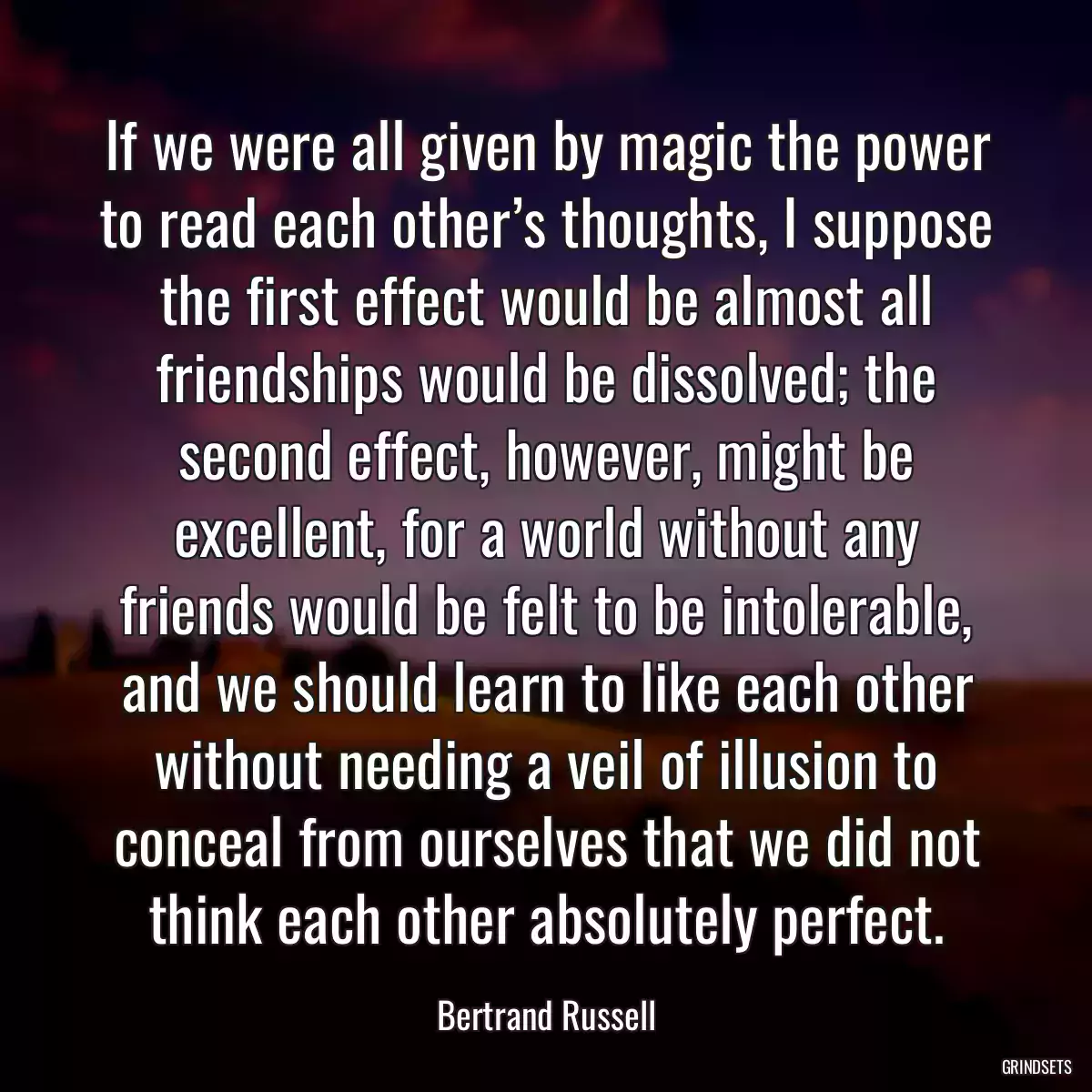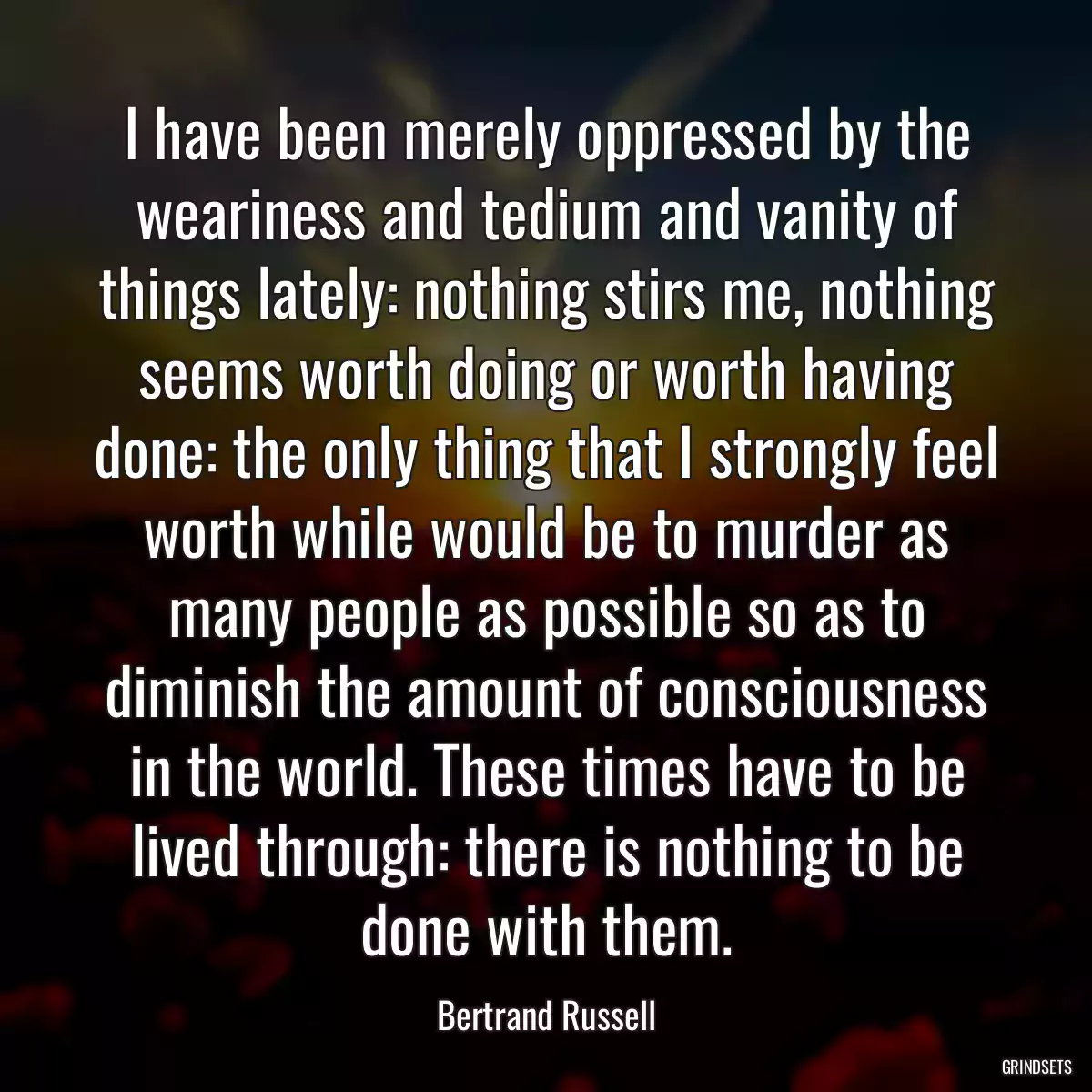
Quotes Bertrand Russell - page 11
Find dozens of Bertrand Russell with images to copy and share.

To the primitive mind, everything is either friendly or hostile; but experience has shown that friendliness and hostility are not the conceptions by which the world is to be understood.
The secret of happiness is this: let your interests be as wide as possible, and let your reactions to the things and persons that interest you be as far as possible friendly rather than hostile.
Why is propaganda so much more successful when it stirs up hatred than when it tries to stir up friendly feeling?
You may also like
Fundamental happiness depends more than anything else upon what may be called a friendly interest in persons and things.
Man is a rational animal—so at least I have been told. … Aristotle, so far as I know, was the first man to proclaim explicitly that man is a rational animal. His reason for this view was … that some people can do sums. … It is in virtue of the intellect that man is a rational animal. The intellect is shown in various ways, but most emphatically by mastery of arithmetic. The Greek system of numerals was very bad, so that the multiplication table was quite difficult, and complicated calculations could only be made by very clever people.
There is no nonsense so errant that it cannot be made the creed of the vast majority by adequate governmental action.
The root of the matter is a very simple and old fashioned thing... love or compassion. If you feel this, you have a motive for existence, a guide for action, a reason for courage, an imperative necessity for intellectual honesty.
A habit of finding pleasure in thought rather than action is a safeguard against unwisdom and excessive love of power, a means of preserving serenity in misfortune and peace of mind among worries. A life confined to what is personal is likely, sooner or later, to become unbearably painful; it is only by windows into a larger and less fretful cosmos that the more tragic parts of life become endurable.

If we were all given by magic the power to read each other’s thoughts, I suppose the first effect would be almost all friendships would be dissolved; the second effect, however, might be excellent, for a world without any friends would be felt to be intolerable, and we should learn to like each other without needing a veil of illusion to conceal from ourselves that we did not think each other absolutely perfect.
It appeared to me obvious that the happiness of mankind should be the aim of all action, and I discovered to my surprise that there were those who thought otherwise.
In regard to the past, where contemplation is not obscured by desire and the need for action, we see, more clearly than in the lives about us, the value for good and evil, of the aims men have pursued and the means they have adopted. It is good, from time to time, to view the present as already past, and to examine what elements it contains that will add to the world's store of permanent possessions, that will live and give life when we and all our generation have perished.
Ever since men became capable of free speculation, their actions, in innumerable important respects, have depended upon their theories as to the world and human life, as to what is good and what is evil. This is true in the present day as at any former time. To understand an age or a nation, we must understand its philosophy, and to understand its philosophy we must ourselves be in some degree philosophers. There is here a reciprocal causation: the circumstances of men s lives do much to determine their philosophy, but, conversely, their philosophy does much to determine their circumstances.
I once saw a photograph of a large herd of wild elephants in Central Africa Seeing an airplane for the first time, and all in a state of wild collective terror... As, however, there were no journalists among them, the terror died down when the airplane was out of sight.
I have lived in the pursuit of a vision, both personal and social. Personal: to care for what is noble, for what is beautiful, for what is gentle; to allow moments of insight to give wisdom at more mundane times. Social: to see in imagination the society that is to be created, where individuals grow freely, and where hate and greed and envy die because there is nothing to nourish them. These things I believe, and the world, for all its horrors, has left me unshaken.
When I was a child . . . Only virtue was prized, virtue at the expense of intellect, health, happiness, and every mundane good.
Be isolated, be ignored, be attacked, be in doubt, be frightened, but do not be silenced.
I know a parson who frightened his congregation terribly by telling them the second coming was very imminent indeed, but they were much consoled when they found he was planting trees in his garden.
You may also like

I have been merely oppressed by the weariness and tedium and vanity of things lately: nothing stirs me, nothing seems worth doing or worth having done: the only thing that I strongly feel worth while would be to murder as many people as possible so as to diminish the amount of consciousness in the world. These times have to be lived through: there is nothing to be done with them.
Only in thought is man a God; in action and desire we are the slaves of circumstance.